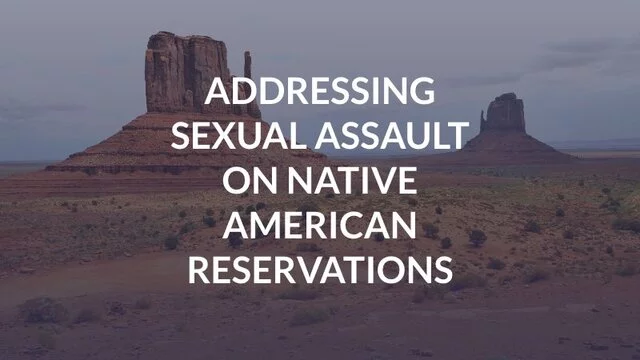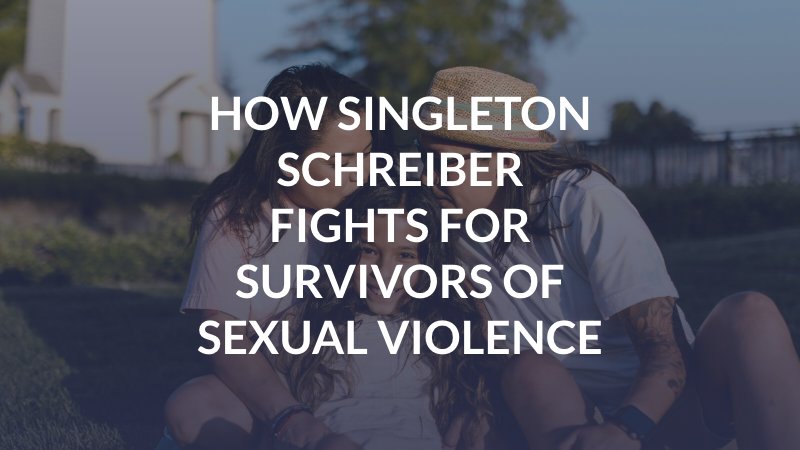
A Crisis Rooted in Historical Oppression
Sexual violence against Native American women living on reservations in the United States is an ongoing crisis, deeply rooted in historical oppression, systemic neglect, and jurisdictional complexity. Native women experience sexual assault at rates that are shockingly disproportionate compared to other groups; four in five American Indian and Alaska Native women (84.3 percent) have experienced violence in their lifetime; 56.1 percent have experienced sexual violence; one in three Native American women reports being raped during their lifetime, a rate 2.5 times higher than that of women from other racial groups. Understanding and addressing this problem requires an exploration of the factors that contribute to it, including historical violence and structural barriers to justice.
Historical Oppression and the Weaponization of Sexual Violence
Historically, oppression has disrupted the social structures of many Native tribes where indigenous women were highly revered as leaders and caretakers. During European conquest, sexual violence was systematically used as a tool of domination to erode these female-centered societies. By targeting women with violence, settlers sought to destabilize entire communities. This legacy of violence has been internalized over generations, contributing to a cycle of trauma and vulnerability.
Today, sexual assault against Native women continues to be perpetuated within this historical framework. The majority of perpetrators are non-Native men, often emboldened by the lack of accountability on reservations. One study found that almost 90% of sexual assaults against Native women are committed by white offenders, reflecting a continuation of colonial attitudes that devalue Indigenous lives and exploit jurisdictional loopholes.
Jurisdictional Complexity and Impunity
One of the most significant barriers to justice for Native women is the complex legal jurisdiction governing reservations. The 1978 Supreme Court decision Oliphant v. Suquamish Indian Tribe stripped tribal courts of the power to prosecute non-Native offenders, even if they committed crimes on tribal land. This forces Native survivors to rely on federal authorities for justice, but federal prosecutors often decline to pursue these cases. In fact, approximately 7667% of sexual abuse cases referred to the U.S. Attorney’s Office from Indian Country are declined (testimony at committee on Indian Affairs September 2008).
The 2013 and 2022 reauthorization of the Violence Against Women Act (VAWA) partially restored tribal jurisdiction over certain crimes committed by non-Natives, in cases involving domestic violence by intimate partners, violence against children, sexual violence, stalking, sex trafficking, obstruction of justice and assaults against Tribal justice personnel.. Still there is a glaring loophole for cases of stranger and acquaintance assault, allowing perpetrators to act with near impunity. Legislative progress remains slow, perpetuating a system where Native women and children are denied justice.
The consequences of sexual assault are profound and far-reaching for Native women. Survivors often suffer from:
- Mental Health Issues: PTSD, depression, anxiety, suicidal ideation, and sleep disorders.
- Substance Abuse: Alcohol and drug use are frequently employed as coping mechanisms, exacerbating health disparities.
- Physical Health Problems: Increased risks of sexually transmitted infections (STIs) and chronic illnesses.
- Economic Instability: Job loss, homelessness, and poverty, creating a cycle of vulnerability.
Barriers to Support and Resources
Access to medical and mental health resources on reservations is woefully inadequate. Indian Health Services (IHS) facilities are often underfunded and understaffed, and many clinics lack essential services like rape kits and counseling for sexual assault survivors. Law enforcement resources and training are often inadequate. Confidentiality is also a major concern in tight-knit tribal communities, deterring many women from seeking help.
Cultural insensitivity among non-Native law enforcement and medical personnel further alienates survivors. Effective support requires culturally sensitive advocates who understand the unique experiences and needs of each tribe. There is no one-size-fits-all solution—each tribal nation must be approached individually to create meaningful support systems.
Pathways to Change: Education, Advocacy, Legislation, and Legal Action
Addressing this crisis demands a multifaceted approach that includes education and advocacy as well as legislative and legal action:
- Culturally Informed Education: Initiatives that educate tribal leaders, community members, and non-Native law enforcement about sexual violence can help shift attitudes and reduce stigma. Programs like the National Indigenous Women’s Resource Center (NIWRC) offer resources and training to empower communities.
- Advocacy Services: Providing comprehensive medical, legal, and personal advocacy tailored to tribal cultures is essential. Hotlines like the StrongHearts Native Helpline offer confidential support to survivors.
- Legislative Action: Expanding tribal jurisdiction to prosecute all perpetrators of sexual violence, regardless of race or relationship to the victim, is a necessary step. The reauthorization of VAWA and the full restoration of tribal sovereignty in legal matters are crucial goals.
- Legal Action: Native American victims of sexual assault may be entitled to file a lawsuit and seek justice in the courts. It’s crucial that all victims have access to the court system.
Despite centuries of attempts to terminate, exterminate and minimize the Native American matrilineal society, Native American women continue to exhibit remarkable resilience. By addressing the historical and contemporary factors that contribute to sexual violence, and by honoring the strength of Indigenous communities, meaningful progress can be made. Justice, healing, and safety for Native women must be a priority—not only to honor treaty obligations but to uphold basic human rights.

How Singleton Schreiber Fights for Survivors of Sexual Violence
Singleton Schreiber’s Sexual Assault Practice Group is committed to helping survivors of sexual assault and abuse seek justice and accountability. We have extensive experience litigating against powerful institutions and corporations and have achieved six-figure and multimillion-dollar results for our clients.
Our team works directly with survivors, including those from Native communities, offering trauma-informed legal support. With firm leaders who are apart of native communities, we understand the unique challenges that arise from jurisdictional complexities and systemic neglect on reservations, and we fight relentlessly to hold perpetrators accountable.
Our Tribal litigation practice area is headed up by Robert Saunooke, an enrolled citizen of the Eastern Band of Cherokee Indians who has spent the last 30 years defending Native American issues including VAWA and the Missing and Murdered Indigenous Women. As an educator, lobbyist and litigator he has handled some of the toughest issues impacting Native communities including cross jurisdictional agreements and training and the prosecution of perpetrators.
We represent adult and child survivors of sexual assault, abuse, and trafficking in cases involving:
- Boarding schools and reformatory institutions
- Educational institutions and daycares
- Residential treatment facilities
- Religious institutions
- Corporate businesses
- The hospitality industry
- Online publishing and tech companies
- Youth camps and athletic facilities
- The entertainment industry
- Powerful predators
If you or someone you know is a survivor of sexual assault, contact Singleton Schreiber for a free, confidential consultation. Together, we can seek justice and help dismantle the systems that perpetuate this epidemic.
- Senior Counsel
Robert Saunooke is a citizen of the Eastern Band of Cherokee Indians and has been practicing law for over 30 years. Over his career, Robert’s practice has focused on representing Native American tribes, their members and ...
- Counsel
Meagan Verschueren leads Singleton Schreiber’s Sexual Assault and Sex Trafficking Practice Group, where she devotes her career exclusively to representing survivors of sexual violence and exploitation. Known for her ...


